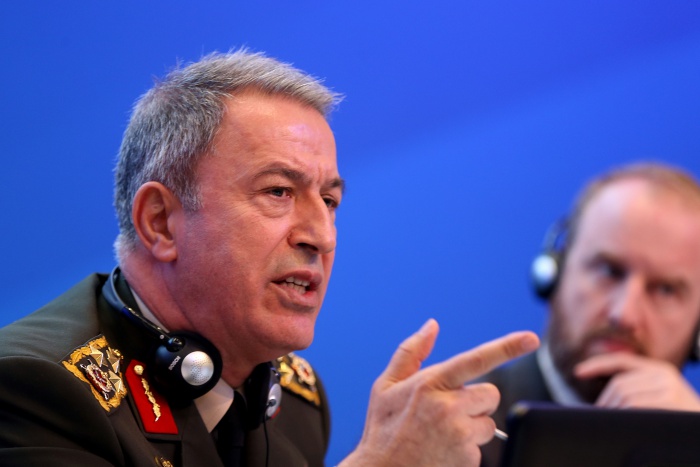Then-Chief of General Staff and current Defense Minister Hulusi Akar was the head of the putschist group that issued mobilization orders and declared martial law in Turkey on the night of a failed coup in July 2016, according to documents obtained by the Nordic Monitor news website.
Turkey survived a failed coup attempt on July 15, 2016 that claimed the lives of 249 people and injured a thousand others. The coup attempt was suppressed overnight and there remain many questions about the real masterminds of the abortive putsch.
Following the coup attempt, the ruling Justice and Development Party (AKP) government declared a state of emergency that remained in effect for two years while it launched a massive crackdown on followers of the Gülen movement as it accuses the movement of masterminding the failed coup. The movement strongly denies any involvement.
The documents obtained from a computer at the General Staff headquarters that was used to write the coup statement included draft versions signed by Akar himself on behalf of the Council of Peace in the Homeland (Yurtta Sulh Konseyi), the name the putschists gave themselves. In one document he was identified as president of the council, while in another draft his name was removed but the word “signed” was inserted, bolstering the view that the chief of general staff actually signed the directive.
The members of the Council of Peace in the Homeland were never identified despite the fact that thousands of officers who were apparently not involved in the putschist mobilization have been investigated, indicted and convicted on dubious coup and terrorism charges since 2016, when the coup attempt was launched during prime time with moves found bizarre by many, such as blocking the bridge between the European and Asian sides of İstanbul.
In the version that was transmitted through secure channels, the council name was at the end of the three-page directive, which was communicated with further orders. The version that was announced later by the public broadcaster and posted on the website of the Turkish Armed Forces (TSK) was circulated as signed by the council without mentioning Akar’s name, although other drafts included his name and signature.
That apparently created confusion among generals and admirals who received the initial orders from headquarters that were transmitted using the Turkish military’s secure communication channel, MEDAS. The transmitted message, written by a lower ranking officer, included the title of brigadier general as the officer who approved the message, which was unusual given the fact that the directives mentioned reassignments in the superior ranks, i.e., at the level of general and admiral.
Although his name was listed in the seized documents as the man who directed the coup attempt, Akar was not charged and was not put on the stand for cross-examination. He was summoned by opposition party lawmakers in parliament who were investigating the coup, but Akar refused to appear. When criticism mounted over his failure to cooperate, he sent a written explanation but did not show up at the hearing held by the parliamentary commission.
Akar was even promoted to defense minister in Erdoğan’s new cabinet, and the entire military apparatus was placed in his portfolio with new legal changes. The documents were examined by an expert from the police department and submitted to the court during the coup trials, but neither the prosecutors nor the judges questioned why Akar’s name was indicated as the signatory of the martial law directives, according to Nordic Monitor.


